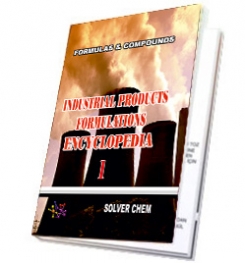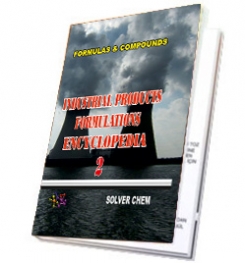Gas engine oils used in biogas or natural gas engines have special formulations that differ from diesel and gasoline engine oil formulations. This is because natural gas engines have:
- A clean burning process with no soot contamination. Therefore, the oils require less detergency/dispersancy (lower ash levels).
- A gaseous fuel source with no risk of fuel dilution. The prevention of a viscosity increase in the oil is more critical.
- A hotter burning process, which is typically from 165 to 235 degrees C. Thus, oxidation/nitration is of greater concern. (The heat may be caused by hot spots within the oil’s circulation located near the piston rings and the combustion chambers.)
For gas engines, the goal is to obtain a lubricant with higher thermal and oxidative stability or to create a lubricant with a minimal oxidative degradation. Standard results for lubricants with poor oxidation protection/control are:
- Sludge formation/filter blockage
- Oil thickening /increased viscosity
- Formation of deposits/oxidation products such as lacquers, varnishes, etc.
- Increased acidity
These operating problems can be prevented by the combination of a good quality base oil with a supplemental antioxidant package. A typical gas engine oil formulation may contain multiple antioxidant additives to help protect the base stock from excessive heat or catalytic degradation.
Antioxidants added alone or in synergistic combinations extend the operating life of the oil by improving its oxidation stability. During their use in lubrication systems, oxidation inhibitors will deplete to a certain critical level, at which point the fluid will start to degrade/polymerize at an accelerated rate. When this happens, important changes in the physical properties of the base stock occur. The oil or lubricant is no longer able to protect the equipment, and its useful life is over.
There is a growing interest in methods predicting an oil change by measuring antioxidant concentration during the lubricant’s lifetime. Monitoring the onset and the propagation of oxidation will lower operating costs and allow users to detect abnormally oxidized and degraded lubricants.
The basic mechanism of oxidative degradation and the role that different antioxidants play begin with the formation of reactive compounds, better known as free radicals, hydro peroxides and peroxides. These reactive compounds propagate into oxygenated hydrocarbons, such as alcohol, acids and sludge. The antioxidants act in two ways: by removing radicals (primary antioxidancy) or by decomposing hydro peroxides to form non-reactive products, which do not participate in further oxidation of the lubricant. Currently, the most commonly used primary antioxidants are the phenolic, phenates, salicylates and amine types; the secondary antioxidants are usually sulfur or metal-containing additives.
Once the antioxidant additives are depleted, the base oil is more vulnerable to oxidation. This may explain why the oil’s viscosity tends to increase as more operating hours accumulate on the gas engine.
Figure 1 shows a RULER voltammogram for different gas engine oil formulations. As you can see, the selection of different types of antioxidants is applied for the gas engine oil formulations, where the following types of antioxidants are used: Zincdithiophosphates (ZnDTP), aromatic amines, phenates, phenols and salicylates.

Figure 1. Multi RULER graphs representing different gas engine oil formulations.

any engine oil
LUBRICATING OIL
FORMULATIONS
ENCYCLOPEDİA
is enough.
LUBRICATING OIL FORMULATION ENCYCLOPEDIA has many formulations of greases, complex grease, lithium grease production,sodium greases formula, formulation,multigrade engine oils manufacturing process,motor oils making, gear oil production, synthetic engine oils,semi synthetic motor oils,gasoline oils,diesel oils production process,composition of turbine oils,transmission oil manufacturing, production of cycle motor engine, tractor oils,mineral based motor engine production,heat transfer oils, slideway oils formulation, formulations, cutting oils formula,formulas grinding oils,mould oils manufacturing process and etc.
All lubricating oils in the encyclopedia are producible easily.You need no help and no technıcal support. The encyclopedia is enough to produce lubricating oils and engine oils itself.
LUBRICATING OIL
FORMULATIONS
ENCYCLOPEDIA
is written clear and understandable.


HARD BOOK E BOOK
RELATED TAGS: What is engine oils,making synthetic diesel engine oil,semi synthetic engine oil manufacturing process,mineral based engine oil production, heavy duty engine oil formulation,high performance engine oil formula,formulas,properties of motor oils,synthetic motor oil msds, analysis,composition of engine oils,additives of motor oils, mineral engine oil formulation,make semi synthetic diesel engine oil, base oils,synthetic base oils,light neutral oil,heavy neutral oil,performance additives package, properties of diesel engine oil, how to formulate engine oils, types of engine oils, synthetic motor oils,ingredients of engine oils,compounds of engine oils, index of motor oil,characteristic of motor oils,application of motor oils,combination of synthetic engine oils.
SOLVERCHEM PUBLICATIONS

|
|

|
|

|
|
